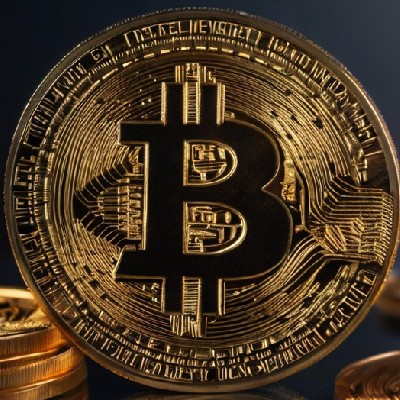
Fuse priceFUSE
FUSE/USD price calculator
Fuse market Info
Live Fuse price today in USD
The cryptocurrency market on September 17, 2025, is experiencing a dynamic period, marked by several key developments and evolving trends. Bitcoin (BTC) continues to be the primary barometer for market sentiment, with its price movements heavily influencing altcoin performance. Today, analysts are closely watching its ability to sustain above critical support levels, following a week of mixed trading signals. The broader market appears to be in a state of cautious optimism, as investors weigh macroeconomic factors against ongoing innovation within the crypto space. [1, 2]
One of the significant narratives dominating discussions today revolves around institutional adoption and regulatory clarity. Recent announcements regarding major financial institutions exploring tokenization of real-world assets (RWAs) are creating a buzz. This movement is seen as a pivotal step towards bridging traditional finance with decentralized ecosystems, potentially unlocking trillions in value. Regulatory bodies globally are increasingly focused on establishing clear frameworks for digital assets, with several jurisdictions reportedly making strides in this area. While some uncertainty remains, the growing dialogue between regulators and industry leaders is generally viewed as a positive sign for long-term stability and growth. [1, 3]
Decentralized Finance (DeFi) continues its relentless innovation cycle, with new protocols and financial primitives emerging. Lending and borrowing platforms, decentralized exchanges (DEXs), and liquid staking derivatives are seeing increased activity. Specifically, a few newer DeFi protocols offering novel yield generation strategies are gaining traction, though investors are advised to exercise due diligence due to the inherent risks associated with early-stage projects. The overall TVL (Total Value Locked) in DeFi remains robust, indicating sustained interest despite market fluctuations. [4, 5]
The Non-Fungible Token (NFT) market is also showing signs of a renaissance in certain niches. While the broader speculative fervor of previous years has cooled, utility-driven NFTs and those integrated within gaming and metaverse ecosystems are experiencing renewed interest. Projects that offer tangible benefits or form part of established digital economies are seeing consistent engagement and trading volume. Art and collectibles segments are more selective, with blue-chip collections maintaining their value while newer, less established projects struggle to gain traction. [6]
From a technological perspective, advancements in layer-2 scaling solutions for Ethereum and other smart contract platforms are a constant focal point. These solutions are crucial for improving transaction speeds and reducing gas fees, addressing some of the long-standing challenges hindering wider blockchain adoption. The ongoing development of ZK-rollups and optimistic rollups is particularly noteworthy, promising a more scalable and efficient future for decentralized applications. Additionally, cross-chain interoperability solutions are gaining momentum, aiming to create a more seamless and interconnected blockchain landscape. [7, 8]
Looking at specific assets, while Bitcoin’s price action is key, several altcoins are exhibiting independent strength or weakness based on project-specific developments. Ethereum (ETH) continues to be a central player, with discussions around its upcoming upgrades and its role in the evolving DeFi and NFT landscapes. Other altcoins with strong fundamentals, active development, and growing communities are also attracting investor attention, particularly those focused on real-world utility, enterprise solutions, or novel consensus mechanisms. Market analysts suggest keeping an eye on projects with clear roadmaps and transparent communication. [9, 10]
In summary, the crypto market on September 17, 2025, presents a complex yet exciting picture. Institutional engagement, regulatory progress, continuous DeFi innovation, and the evolving utility of NFTs are shaping the current landscape. While volatility remains an inherent characteristic, the underlying technological advancements and increasing mainstream acceptance signal a maturing market with significant long-term potential. Investors are encouraged to stay informed and approach the market with a well-researched strategy.
Do you think the price of Fuse will rise or fall today?
Now that you know the price of Fuse today, here's what else you can explore:
How to buy Fuse (FUSE)?How to sell Fuse (FUSE)?What is Fuse (FUSE)What would have happened if you had bought Fuse (FUSE)?What is the Fuse (FUSE) price prediction for this year, 2030, and 2050?Where can I download Fuse (FUSE) historical price data?What are the prices of similar cryptocurrencies today?Want to get cryptocurrencies instantly?
Buy cryptocurrencies directly with a credit card.Trade various cryptocurrencies on the spot platform for arbitrage.Fuse price prediction
When is a good time to buy FUSE? Should I buy or sell FUSE now?
About Fuse (FUSE)
What Is Fuse?
Fuse is an Ethereum-compatible blockchain platform aimed at simplifying Web3 technology adoption for businesses and developers. By focusing on accessible and efficient transaction solutions, Fuse empowers companies—whether Web2 entities seeking blockchain integration or Web3-native projects—to incorporate blockchain functionality into their applications. The Fuse platform is public, decentralized, and permissionless, allowing anyone to transact, build applications, or run a validating node to help secure the network.
Key features of the Fuse platform include fast transaction times (under five seconds), low transaction fees (around $0.0001 per transaction), and full compatibility with the Ethereum Virtual Machine (EVM). This compatibility allows applications deployed on Ethereum or other EVM-based networks to work seamlessly on Fuse, making it adaptable for gaming, social platforms, payments, and decentralized finance (DeFi) solutions. Additionally, Fuse’s future development includes a transition to a layer-2 platform called Fuse Ember, which will use the Polygon CDK to offer higher throughput, lower costs, and enhanced interoperability with other Polygon chains.
How Fuse Works
Fuse operates on a Delegated Proof of Stake (DPoS) consensus model, a modified version of Proof of Stake (PoS). This model allows for a decentralized network where validators are chosen based on their staked tokens rather than computational power. Fuse’s DPoS structure introduces delegators, token holders who prefer not to run a node but still want to participate in the network’s governance. By delegating their staked FUSE tokens to selected validators, these users can help secure the network and share in the rewards validators receive for processing transactions.
Fuse’s unique implementation of the Authority Round (AuRa) consensus mechanism enables validators to take turns validating blocks in a round-robin format. Each validator has a five-second window to validate a block, during which transactions are confirmed and rewards distributed. This efficient block production method supports fast transaction confirmation times. Validators are incentivized to maintain the network's security and stability as they earn block rewards and transaction fees, but they also face penalties (like temporary suspension) if they act against the network’s rules.
Validators and delegators can earn rewards proportional to the amount of FUSE staked. Every 2-day cycle, the network takes snapshots to update the validator set, determining which participants are eligible for rewards. If a validator consistently fails to meet the network's requirements, they may be replaced by others with more reliable performance or higher stakes.
What Is the FUSE Token Used For?
The FUSE token is the native cryptocurrency of the Fuse network, used for multiple purposes within the ecosystem:
-
Transaction Fees: FUSE is used to pay transaction fees (gas) on the Fuse blockchain, making it essential for any activity within the network.
-
Payments: FUSE can be transferred directly between users, allowing businesses and users to conduct payments without involving complex smart contract interactions.
-
Staking and Validation: Users who wish to become validators on the Fuse network must stake a minimum of 100,000 FUSE tokens. This stake requirement helps maintain network security and ensures validators have a vested interest in the network’s integrity. Token holders who don’t want to run nodes can delegate their FUSE to validators and earn a share of the rewards.
-
Governance: Validators can use their staked FUSE to vote on proposed changes to the Fuse protocol, impacting aspects like validator set selection, staking mechanics, and block rewards. Validators who receive delegated FUSE from other users gain additional voting weight, giving them greater influence over network upgrades and governance decisions.
-
Cross-Chain Transactions: FUSE supports interoperability with Ethereum and other blockchains through Fuse Bridge, AllBridge, and LayerSwap. These tools allow FUSE tokens to move across major blockchains, including Ethereum, BNB Smart Chain, Polygon, and others, expanding their utility across multiple ecosystems.
Fuse also periodically uses FUSE tokens to incentivize liquidity rewards on decentralized exchanges (DEXs), enhancing the token’s liquidity and supporting DeFi applications within the Fuse ecosystem.
Conclusion
Fuse is an Ethereum-compatible blockchain aimed at making Web3 accessible for businesses with fast, low-cost transactions. The FUSE token supports network activities like transaction fees, staking, governance, and cross-chain transfers, empowering validators and delegators to help secure the network. With its Delegated Proof of Stake model, Fuse offers a practical, scalable platform for applications in payments, DeFi, and beyond.
Bitget Insights




FUSE/USD price calculator
FUSE resources
What can you do with cryptos like Fuse (FUSE)?
Deposit easily and withdraw quicklyBuy to grow, sell to profitTrade spot for arbitrageTrade futures for high risk and high returnEarn passive income with stable interest ratesTransfer assets with your Web3 walletWhat is Fuse and how does Fuse work?
Global Fuse prices
Buy more
FAQ
What is the current price of Fuse?
What is the 24 hour trading volume of Fuse?
What is the all-time high of Fuse?
Can I buy Fuse on Bitget?
Can I get a steady income from investing in Fuse?
Where can I buy Fuse with the lowest fee?
Related cryptocurrency prices
Prices of newly listed coins on Bitget
Hot promotions
Where can I buy Fuse (FUSE)?
Video section — quick verification, quick trading









